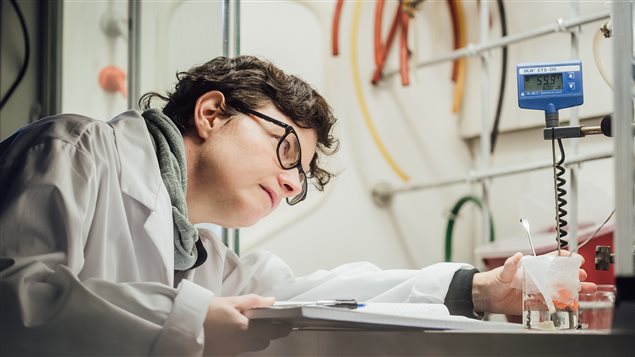Conventional ways of delivering drugs or fertilizer often spread them to places where they can do harm, but scientists are devising ways to avoid that. For example, drugs used in chemotherapy can travel to parts of the body where they are not needed and kill healthy cells. Fertilizer can run off into lakes and streams causing pollution and algae blooms.
Prof. Elizabeth Gillies and her team of researchers at Western University in Ontario are working on what they call “mini-suitcases” to house materials and release them at the right time and place.
ListenPrize will help further research
“We’ve developed some new plastics or polymers that can be degraded selectively when we cleave off something called an end-cap from them. These end-caps are responsive to specific stimuli that we design them for, for example light, heat or specific chemicals that could be present in cancer for example. And when these little packages reach these stimuli, then they unzip and release whatever they’re carrying.”
More testing needs to be done and it will be some years before the technique can be applied. Gillies has received the Steacie Fellowship, one of Canada’s most prestigious science prizes to continue her work.
Video from Western University.







For reasons beyond our control, and for an undetermined period of time, our comment section is now closed. However, our social networks remain open to your contributions.